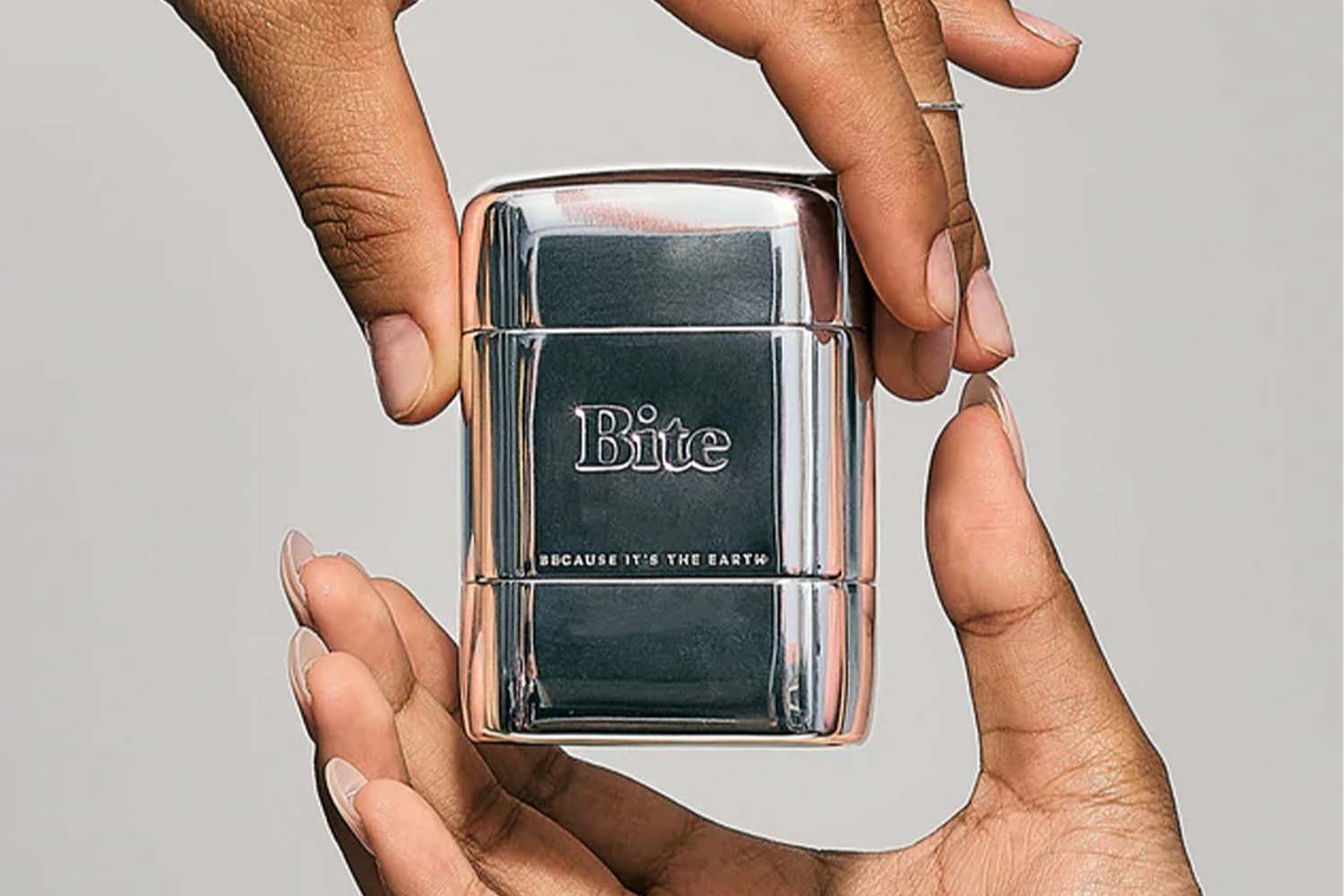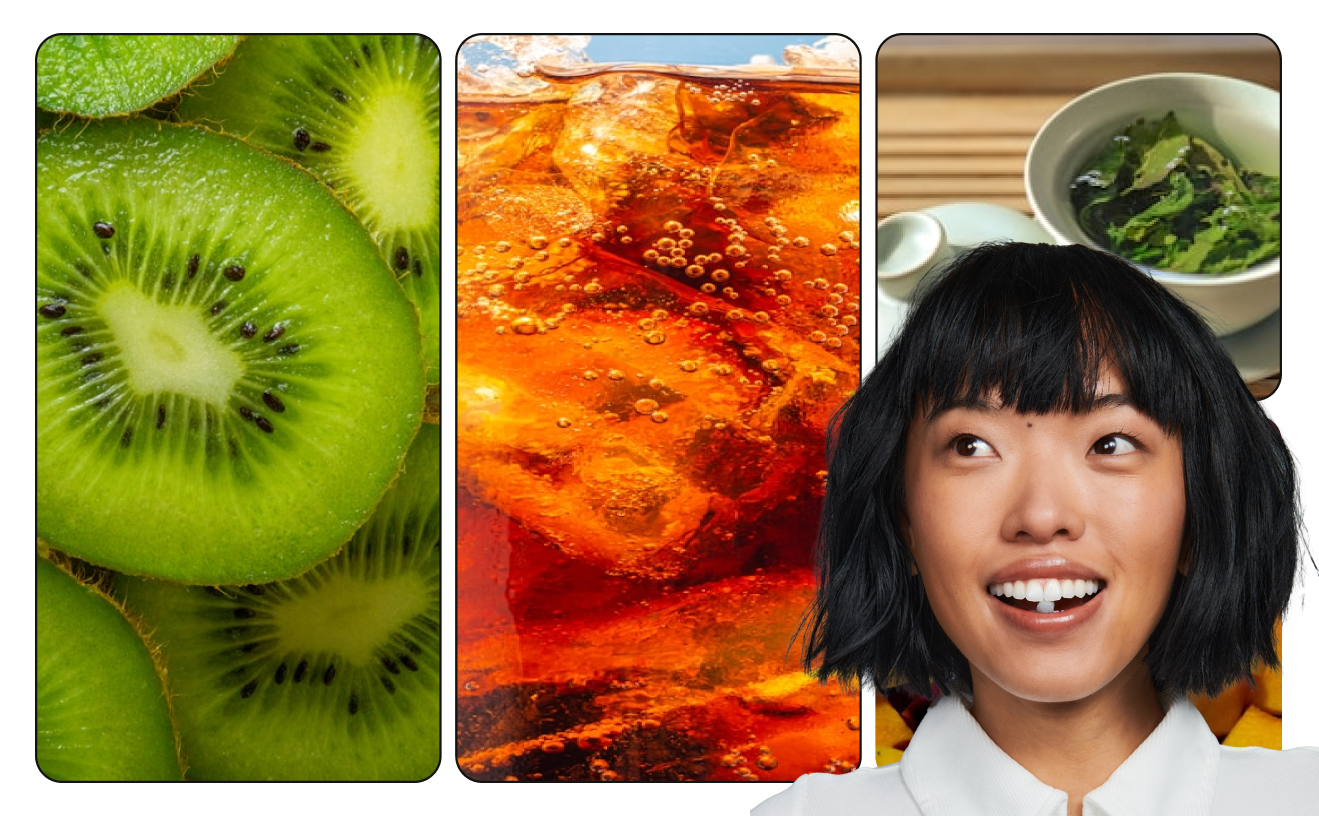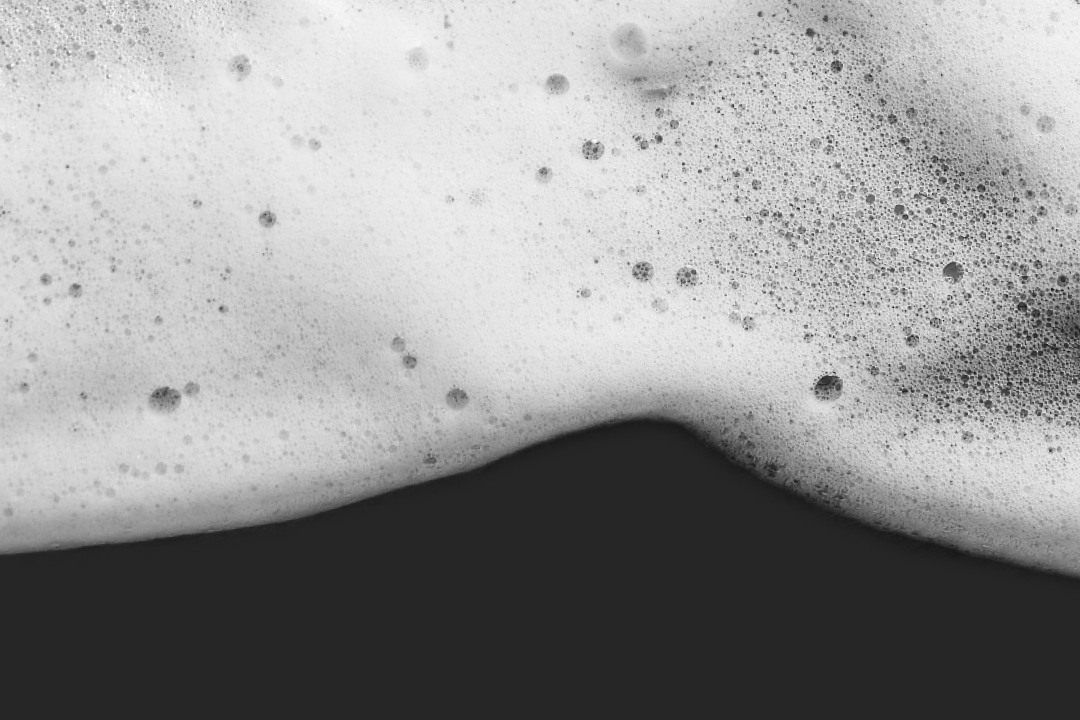Deodorant Ingredients: Bite Deodorant vs. Mainstream Industry Leaders
If you’ve applied deodorant solely because it smells nice, we don’t blame you. However, even though most deodorants can make us smell and feel fresh, not all of them are built equally.
Many deodorants are made with synthetic chemicals and substances that, while effective at reducing odors and sweat, can cause some health problems in the long term — or, at the very least, might irritate your skin. Plus, many are made with plastic packaging that can do damage to the planet over time.
With such a wide range of deodorants to choose from, it can be tough to decide which formulation is right for you, your priorities, and your skin’s needs. Whether you’re looking for something fragrance-free or floral, baking soda or tapioca starch-based, or aren’t quite sure what you want, we’re here to break down industry leaders so you can have a better idea of what’s on the market — and how it measures up.
Bite works differently. Let’s take a look at how our deodorant compares with mainstream industry leaders so you can get a better understanding of how and why you can make the switch to a zero-waste lifestyle.
What Are the Ingredients in Bite Deodorant?
We pride ourselves in delivering fresh-scented, high-quality deodorant made with natural ingredients. And before we talk about what’s inside, let’s talk a little bit about what’s not.
First and foremost, you won’t find any aluminum or parabens in these deodorants (because, yuck). Aluminum is a common ingredient in single-use deodorant because it plugs sweat glands and prevents sweat. However, eliminating your body’s natural sweating process is dangerous, so we use some safer alternatives.
Not to mention, you won’t find any single-use plastic around these parts. All of our deodorants come in a reusable container with compostable refills. So when it comes time for a replacement, you won’t need to feel guilty about that plastic canister getting lost in a landfill for centuries to come.
But without further ado, here’s your inside scoop on what is inside.
Coconut Oil
Coconut oil is a lot more than just an ingredient for cooking and baking. It’s also a fantastic protective barrier on your skin to reduce irritation and help prevent bacterial growth.
If you’ve never considered moisturizing your underarm skin, you certainly aren’t alone. However, coconut oil can help this delicate skin retain moisture for the soft and smooth underarms of your dreams. Who knew?
So, you can have confidence that this ingredient offers plenty of potential benefits, both for odor protection and skin health.
Tapioca Starch
Many deodorants double as antiperspirants, which are meant to cut back on sweat production, so you stay looking just as good as you smell.
However, mainstream antiperspirants use aluminum to block the sweat glands from producing sweat — at all.
The thing is, excessive amounts of aluminum in the bloodstream may have long-term effects on your health. Not to mention, it can plug sweat pores and lead to breakouts, and it blocks one of your body’s most natural functions — sweat.
While you’re likely not using enough aluminum to cause this issue, why take the risk? Tapioca starch is a natural alternative that absorbs moisture on top of the skin without interrupting the natural sweating process.
Castor Seed Oil
Castor seed oil is a thick, odorless oil from the castor plant. It’s been used for centuries, dating all the way back to ancient Egypt because of its humectant properties. Humectants are substances that prevent water loss, helping to moisturize the skin and keep it moisturized.
Shea Butter
Shea butter is another powerful ingredient to be used in deodorant. Many mainstream deodorants focus on making a good smelling product, but they don’t focus on what it actually does to the skin.
At Bite, we take everything into consideration so you don’t have to. That’s why we use ingredients like shea butter, which helps moisturize and nourish your delicate underarm skin.
Vitamin E
The shea butter in our deodorant also contains vitamin E for optimal skin health and hydration.
You might see it on the ingredient list as Tocopherol, and while that looks like a scary name for a scary chemical, it’s just a fancy word for vitamin E.
Sunflower Seed Oil
All of these fantastic ingredients are great for a deodorant, but they don’t really mean that much if your skin isn’t able to absorb and utilize them. This is where sunflower seed oil shines, as it can help your skin absorb hydration and vitamin E.
It is highly absorbent, but it won’t clog pores. Not to mention, it’s non-irritating for most people.
Fragrance
Arguably the most important part of deodorant is the fragrance used to make you smell fantastic. We worked with perfumers that specialize in creating natural and safe fragrances while continuing to focus on sustainability and environmental practices.
Our Neroli scent is 100% naturally derived. Like a breeze of grassy citrus on a sunny coastal afternoon, this deodorant will transport you to the Italian Riviera (without contributing to plastic waste).
Our misty forest trail Santal scent, as well as our sunkissed floral Rose scent, are made with a combination of natural and synthetic ingredients.
But we have nothing to hide. See our full list of ingredients here to know exactly what you’re putting on your body.
And if no scent is better than any scent, we’ve got you covered. We have a Fragrance-Free Deodorant specifically meant for sensitive skin types so they can keep staying fresh without irritation.
What Are the Ingredients in Schmidt’s Deodorant?
Schmidt's is another leader in the natural deodorant game, and they pride themselves on being the first natural deodorant in the U.S. that are certified natural by Ecocert. There’s no aluminum, no salt, and no artificial fragrances.
Baking Soda
One of the main ingredients that Schmidt’s uses and we don’t is baking soda. While baking soda is effective at fighting odors because of its alkalinity, it can be harsh on the skin – especially for those with sensitive skin types.
In fact, it’s common for people to develop a rash when using deodorants that rely on baking soda.
We recommend using small amounts of baking soda deodorants before going all in just to make sure it doesn’t cause any irritation.
Charcoal Powder
Schmidt's deodorants also contain charcoal powder. Charcoal has long been touted as an effective ingredient in skincare products because it is highly porous. It absorbs 100-200 times its weight in impurities, making it perfect for sucking up bacteria and toxins that might otherwise make you feel less-than-fresh.
Plus, charcoal can help to make skin feel nice and smooth. So if you shave your armpits, this can be a great ingredient for making your skin feel soft and smooth.
With that said, charcoal can also be abrasive for sensitive skin types, just like baking soda, so be sure to proceed with caution.
Coconut Oil
Just like us, Schmidt’s deodorant also uses coconut oil. There are good reasons why so many natural deodorants use coconut oil, and it mainly falls back on the fact that it can reduce irritation and cut back on bacterial growth.
Shea Butter
Shea butter is also used in a lot of natural deodorants because it’s just so great at moisturizing the skin. It helps nourish and soothe skin, which can be useful if you’ve got some irritation from aluminum-filled deodorants that you’ve used in the past.
Fragrance
Schmidt’s has a wide variety of scents, none of which contain any artificial fragrances.
They have naturally scented fragrances including fresh cucumber, jasmine tea, clean coconut, bergamot and lime, clean powder, and rose and vanilla.
So if you’re someone who just can’t decide which type of scent you want your pits to smell like, or if you like to have a ton of variety, you’d never run out of options here. However, it is beneficial to keep in mind that some of their ingredients may be a bit abrasive for certain skin types, so be sure to try just a small amount on your skin to see how you react before you go all in.
What Are the Ingredients in Native Deodorant?
Native deodorant is one of the first aluminum-free deodorants on the market that also ditches chemicals like phthalates or talc. Instead, they opt for ingredients that you can actually understand.
Let’s take a look at what they’re made of.
Glucose
Glucose is a simple sugar made from corn that can help make deodorant more satisfying to apply. It makes it smooth and helps to eliminate that gross, chalky feeling.
However, this can spell trouble if you have glucose intolerance or allergy, so you definitely want to be wary of these products if that applies to you.
Probiotics
Probiotics contain live microorganisms that are meant to improve or maintain the “good” bacteria that you have in your body. These good bacterias can help fight off infection, regulate the immune system, and more. Typically, people consume probiotics to stimulate gut health, but there are some reported benefits to using them in deodorants as well.
Bacteria under your arms is one of the main contributors to body odor, so probiotics in deodorant can work to combat those microorganisms and keep you smelling fresh. In fact, there’s even evidence to suggest that consuming probiotics can help fight odor from the inside out.
Baking Soda
Baking soda can make a cake nice and fluffy, but it can also help absorb moisture without plugging your sweat glands.
Again, just remember that it might not be suitable for all skin types, so use it sparingly so you can see how it affects your skin while also letting your body adjust to the new ingredient.
Coconut Oil
You’ll see coconut oil a lot in natural deodorants. As we’ve said, it’s perfect for reducing irritation, bringing a little bit of moisture to the skin, and cutting back on bacteria. It’s an all-around effective ingredient with tons of benefits.
Shea Butter
Native uses shea butter in their deodorant too. It’s a great moisturizer that helps to retain antioxidants and vitamins.
Tapioca Starch
Tapioca starch is extracted from the cassava plant, and it’s a great natural alternative to aluminum because it absorbs moisture without clogging the pores. It’s another ingredient that you’ll likely see in natural deodorants because it has amazing benefits without any known adverse effects.
What Are the Ingredients in Package Free Deodorant?
As the name implies, Package Free deodorant doesn’t use any packaging in order to help cut back on waste. They are 100% plastic-free, and everything that Package Free sells uses zero, or minimal, packaging.
That’s great, but how does the quality of the deodorant stack up? Let’s dive in.
Coconut Oil
There’s your favorite ingredient again. Coconut oil is one of the most popular ingredients in natural deodorants because of all of its reported benefits.
Cocoa Seed Butter
Cocoa butter contains a high amount of fatty acids. This makes it very suitable as a skin cream ingredient. This fat creates a protective barrier that holds moisture and prevents skin from drying out.
Not to mention, it’s rich in antioxidants and can help fight free radical damage. This keeps skin soft, younger-looking, and more moisturized. That’s good in deodorant because it can help prevent dryness and flaking.
Arrowroot Powder
Arrowroot is a tropical tuber native to Indonesia, but it’s used all over the world for its skincare uses. Arrowroot absorbs moisture and helps to keep odors at a minimum.
It’s a great alternative to baking soda, as it essentially does the same thing without the abrasiveness. It’s also the perfect solution for people with sensitive skin types or gluten sensitivities.
Essential Oil
You’ve probably used essential oils in a diffuser or thrown a couple of drops into a hot bath. Essential oils are pretty essential, and not only do they have reported benefits for cutting back on stress and improving mood, but they also smell pretty great.
Essential oils make a lot of sense as a deodorant ingredient. Not only do their properties help control odors, but they actually do the opposite of what many antiperspirants do. They open your pores rather than close them, letting you release toxins and cool off.
Sunflower Seed Wax
Sunflowers are one of nature’s prettiest inventions, but it’s also an invention that can make you feel your prettiest. Sunflower seed oil is loaded with fatty acids as well as vitamins A, D, and E. These are perfect for repairing damaged skin and fighting against oxidation or skin aging.
Plus, it can help prevent dehydration, and it has some calming and nourishing properties to make it a solid additive in deodorants. For those reasons, it makes sense that Package Free would use it in their products.
Is Baking Soda Safe for Sensitive Skin?
Here’s the deal on baking soda in deodorant: while it’s generally not harmful, it does have the potential to irritate the skin. This is especially true if you have sensitive skin. Most people don’t know that they are sensitive to baking soda until they start applying it.
Typically, people who use deodorants with baking soda experience redness, rashes, itching, or burning under their arms from applying it. While it’s affordable and can help absorb moisture, it’s not for everyone.
Precautions
If you’re going to try baking soda deodorant, try applying just a small amount on an inconspicuous part of your body like the back of your hand. This way, you can see how it reacts with your skin. If you notice redness or burning, you probably won’t want to put it under your arms.
If the burning sensation is extremely uncomfortable, you’ll want to schedule a visit with a dermatologist just to make sure there isn’t some other type of ingredient that’s causing pain.
In some cases, a skin reaction under your arms may cause the associated lymph node to swell. This can sometimes indicate an allergy, and you should consult your healthcare provider for more insight if you experience this type of swelling after using a baking soda-based deodorant.
How Are Deodorant and Antiperspirant Different?
All antiperspirants can be considered deodorants, but not all deodorants can be considered antiperspirants. Deodorants, as their name implies, are meant to deodorize you and protect you against underarm odor.
Essentially, they are meant to combat smelly bacteria and cancel it out with good-smelling scents to keep you feeling fresh (thank you!)
Antiperspirants, on the other hand, are meant to prevent you from sweating altogether. Many of these contain aluminum, as this ingredient can work to physically block your sweat glands and prevent moisture from giving you those gnarly pit stains.
However, the controversy surrounding chemical antiperspirants is on the rise, with many experts fearing that these are not very good for your health. The good news is that natural deodorants like ours have started using natural aluminum alternatives, like tapioca starch, which can help to absorb your sweat rather than physically preventing it from occurring.
This is a safer and more comfortable means of reducing underarm wetness without stopping (or interfering with) your natural bodily functions.
The Bottom Line
Many people don’t pay much attention to the ingredients in their deodorant – they really just care about the smell.
While that is the main purpose of a deodorant, it is still important to keep the ingredients in mind so that you’re aware of the impact they may have on both your health and the planet.
There are plenty of ingredients that you’ll likely find in different natural deodorants, like coconut oil and shea butter, which can retain moisture and help soften the skin.
However, some deodorants contain ingredients like baking soda or charcoal. While these can prevent bacterial growth, they can also irritate sensitive skin types.
The best thing to do is just try out different types of deodorants until you find one that fits. But you also want to make sure that when you’re done with your options, you’re disposing of them responsibly.
Bite makes it easy by ensuring that all of our deodorants are plastic-free. Our deodorants come in a first-of-its-kind 100% plastic-free casing with fully compostable refills. It just makes scents.
Shop Bite deodorants for as low as $8 a month and take steps towards a zero-waste lifestyle. Because every little bit counts.
Sources:
Coconut Oil and Immunity: What do we really know about it so far? | NCBI
Is Deodorant Harmful for Your Health? | Penn Medicine
Probiotics and prebiotics: What you should know | The Mayo Clinic.


